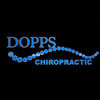How a Chiropractor for Nerve Pain in Overland Park, Kansas Can Help Prevent a Herniated Disc When Coughing with Poor Posture
- Dr. Rory Dopps

- Sep 10, 2024
- 4 min read

Introduction
Have you ever experienced back pain after coughing? Your posture may be to blame. Poor posture during everyday activities, such as coughing or sneezing, can lead to serious spinal issues like herniated discs. By improving your posture and incorporating chiropractic care from a chiropractor for nerve pain in Overland Park, Kansas, you can protect your spine from unnecessary strain and discomfort.
Understanding Herniated Discs
A herniated disc occurs when the soft, gel-like center of a spinal disc pushes out through a tear in the tougher outer layer, potentially compressing nearby nerves. Discs act as cushions between your vertebrae, absorbing shock and helping you move flexibly. When a disc herniates, it often causes pain due to nerve compression, leading to various symptoms depending on the location.
Symptoms of a Herniated Disc:
Pain: Sharp or shooting pain, particularly in the lower back, neck, or down the legs (sciatica).
Numbness and Weakness: You may experience numbness, tingling, or weakness in your arms or legs, depending on which part of the spine is affected.
The Link Between Coughing, Posture, and Disc Herniation
Impact of Poor Posture on the Spine: Poor posture puts additional strain on your spine, increasing your risk of disc problems. Sitting or standing with a slouched posture weakens your spinal support muscles, making the spine more vulnerable to injury. Forward head posture also puts extra pressure on your neck and upper back, leading to misalignments and spinal stress.
How Coughing Affects the Spine: Coughing creates intra-abdominal pressure, which can transfer force to the spine. Every time you cough, your core muscles engage, and pressure builds in the abdominal area. If your posture is poor, this pressure transfers to your spine, particularly your lower back. When you cough with poor posture, the stress on your spine increases, pushing a weakened or already stressed disc out of alignment and leading to herniation.
The Role of a Chiropractor for Nerve Pain in Overland Park, Kansas in Preventing and Treating Herniated Discs
Chiropractic care involves gentle spinal adjustments that realign vertebrae and reduce pressure on discs. A chiropractor for nerve pain in Overland Park, Kansas can use specific techniques to correct spinal misalignments and relieve pressure on herniated discs, restoring proper alignment and reducing nerve compression.
Chiropractic care also focuses on improving posture, which helps prevent disc injuries. Chiropractors can identify poor posture habits and guide you in correcting them, reducing strain on your spine during activities like coughing. By maintaining proper posture, you lower your risk of herniation or aggravating existing disc issues.
Reducing Inflammation and Pain: Chiropractic care helps alleviate pain and inflammation associated with herniated discs. Adjustments reduce inflammation around the disc, relieving nerve pressure and allowing the area to heal. Chiropractic care provides a natural and non-invasive way to manage chronic pain caused by disc issues.
Importance of Correct Posture During Everyday Activities
Maintaining proper posture during coughing and sneezing can prevent disc herniation. Keeping your back straight and shoulders back when you cough or sneeze helps reduce stress on your spine. If standing, slightly bending your knees and engaging your core muscles can help protect your spine.
It’s also crucial to maintain good posture throughout the day, whether you’re sitting or standing. Using proper lumbar support when sitting and standing tall with your shoulders back prevents strain on your spine over time, reducing the risk of herniation.
Nutritional Support and Supplementation
Certain foods can help reduce inflammation and support spinal health. Omega-3 fatty acids, found in fish like salmon, and antioxidants from leafy greens and berries help reduce inflammation that can aggravate a herniated disc. Calcium and magnesium-rich foods, such as seeds and nuts, support overall spinal health and strength.
Supplement Recommendation: Inflammatone™According to the Designs for Health catalog, Inflammatone™ is formulated to support a healthy inflammatory response and reduce pain. It contains natural ingredients that help manage conditions like herniated discs, making it ideal for individuals dealing with chronic inflammation in the spine.
Complementary Therapies and Lifestyle Adjustments
Regular physical activity can help prevent herniated discs and improve recovery. Exercises like planks and bird dogs strengthen your core, providing better support to your spine. Gentle stretching exercises, such as cat-cow and seated stretches, improve flexibility and reduce tension in your spine.
Good posture and ergonomics are crucial for spinal health. Set up your workspace with ergonomic chairs and desks to ensure proper posture while working. Practicing posture awareness throughout the day can help prevent slouching or spinal strain during daily tasks.
Posture Corrector Brace: A posture corrector brace is designed to help you maintain proper spinal alignment, especially during activities like sitting, standing, or coughing. This tool can reduce the risk of herniated discs by encouraging better posture throughout your day.
Conclusion
Coughing with poor posture can exacerbate existing spinal problems and lead to herniated discs. The increased pressure on the spine during a cough, combined with poor posture, puts unnecessary stress on the spinal discs. Chiropractic care is a non-invasive, effective way to correct spinal misalignments, improve posture, and reduce the risk of herniated discs.
Regular chiropractic adjustments, combined with good posture, proper nutrition, and an active lifestyle, can significantly improve your spinal health.
If you’re experiencing back pain or concerned about disc issues, consider working with a chiropractor for nerve pain in Overland Park, Kansas. Schedule a consultation with Dr. Rory Dopps today to receive personalized care aimed at correcting posture, relieving pain, and preventing disc herniation.




Comments